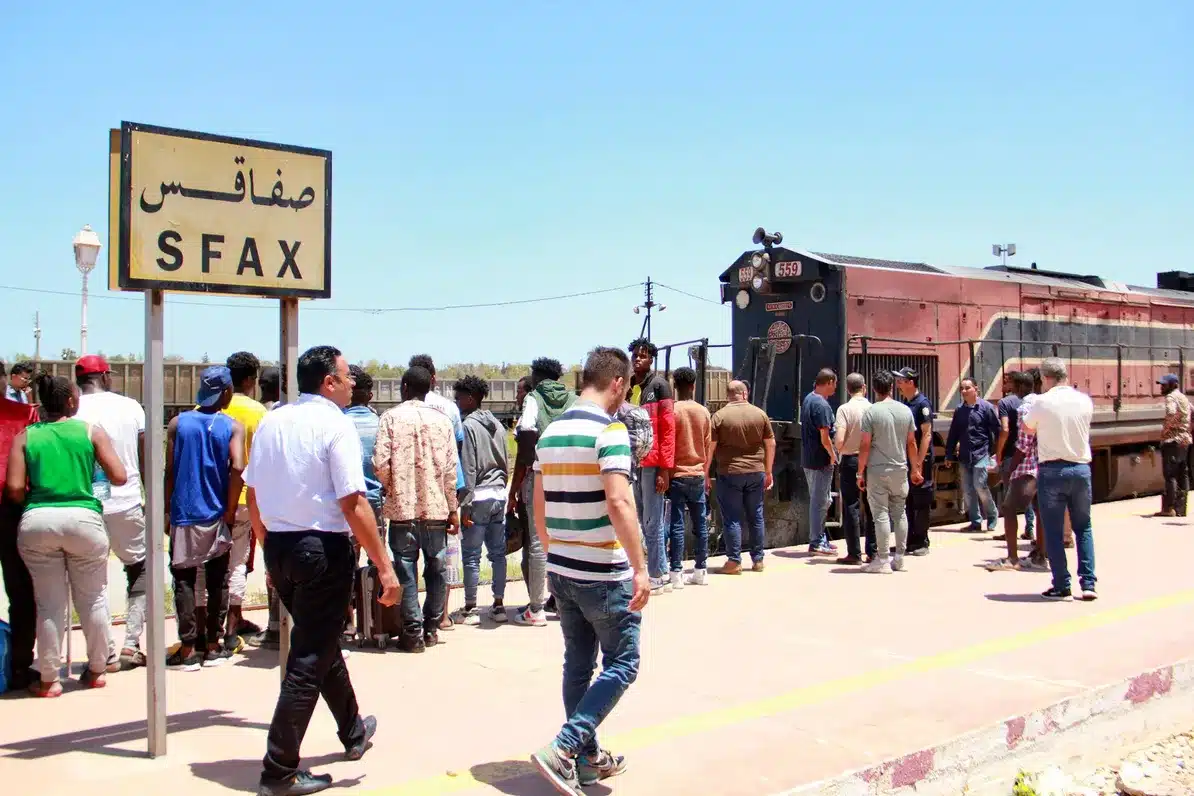In the Tunisian city of Sfax, the stabbing death of a local has sparked a surge of anti-immigrant violence. Hundreds of residents have taken to the streets in protest, demanding the immediate expulsion of all undocumented migrants from the city.
According to eyewitness reports, scores of African migrants have been driven out of Sfax following a night of upheaval triggered by the murder. Throughout the central-eastern city, large groups of residents gathered in the streets from Tuesday into Wednesday, 6 July, calling for the prompt removal of all undocumented migrants, according to a local AFP correspondent.
The atmosphere in the city has been described as “inhumane”, with some individuals resorting to blocking roads and setting tyres ablaze to vent their frustration. The stabbing victim, a 41-year-old local, was allegedly killed during a late-night conflict with migrants of Cameroonian origin, authorities have reported. Social media footage shows police officers evicting dozens of migrants from their homes to the cheers of local residents before loading them into police vehicles. Other videos show migrants sitting on the ground, hands on heads, encircled by baton-wielding locals awaiting the arrival of the police.
Local group Sayeb Trottoir, focused on illegal immigration issues, shared a Facebook post from Lazhar Neji, an emergency worker at a Sfax hospital, lamenting the “inhumane, bloody night”. According to Neji, between 30 and 40 migrants, including women and children, were admitted to the hospital. He claimed that some had been thrown from terraces, others attacked with sabres.
In a joint statement, the Forum for Economic and Social Rights (FTDES), along with over 20 other Tunisian and international NGOs, expressed deep concern over the situation. They asserted that on Tuesday, security forces had escorted a “group of 100 migrant and refugee individuals” from the Sfax region towards the Libyan border. The group, which included Ivorian, Cameroonian, and Guinean nationals, along with at least 12 children aged between six months and five years, had been relocated.
In addition, around 50 other migrants had been directed towards the same region on 2 July. The NGOs claimed that some of these individuals had been “beaten and mistreated” and called on the authorities to “provide clarification on these incidents and intervene urgently to ensure these people are cared for”.
Several migrants rushed to Sfax’s railway station to catch trains to other Tunisian cities, according to an AFP photographer. Jonathan Tchamou, a young Congolese man, described the severity of the problem: “There’s a serious problem in Sfax. A Sub-Saharan killed a Tunisian, and now the Tunisian population is angry with all Sub-Saharans and is attacking them. Even the Tunisian police are trying to arrest all Sub-Saharans illegally to push them back into the Libyan desert.”
“We are really scared of being here, that’s why we want to leave Sfax at all costs,” added Tchamou, stating that he had come to Tunisia legally with a student visa. “Tunisia used to be a welcoming country for us, we lived comfortably here, but now we’re not welcome, so the solution would be to cross the Mediterranean to go to Europe.”
The Monday death in Sfax triggered a wave of predominantly racist reactions, calling for the expulsion of African migrants from the city, a frequent starting point for many illegal sea crossings to Italy. The tension between the residents and the migrants has heightened following a speech in February by President Kais Saied, in which he condemned illegal immigration and portrayed it as a demographic threat to his nation.
Many of these migrants come to Tunisia with the intention of eventually reaching Europe by sea, by landing clandestinely on the Italian coast. On Tuesday, Saied insisted that Tunisia “does not accept on its territory anyone who does not respect its laws, nor to be a transit country (to Europe) or a land of resettlement for the nationals of certain African countries.”
Image Credit: HOUSSEM ZOUARI / AFP



















